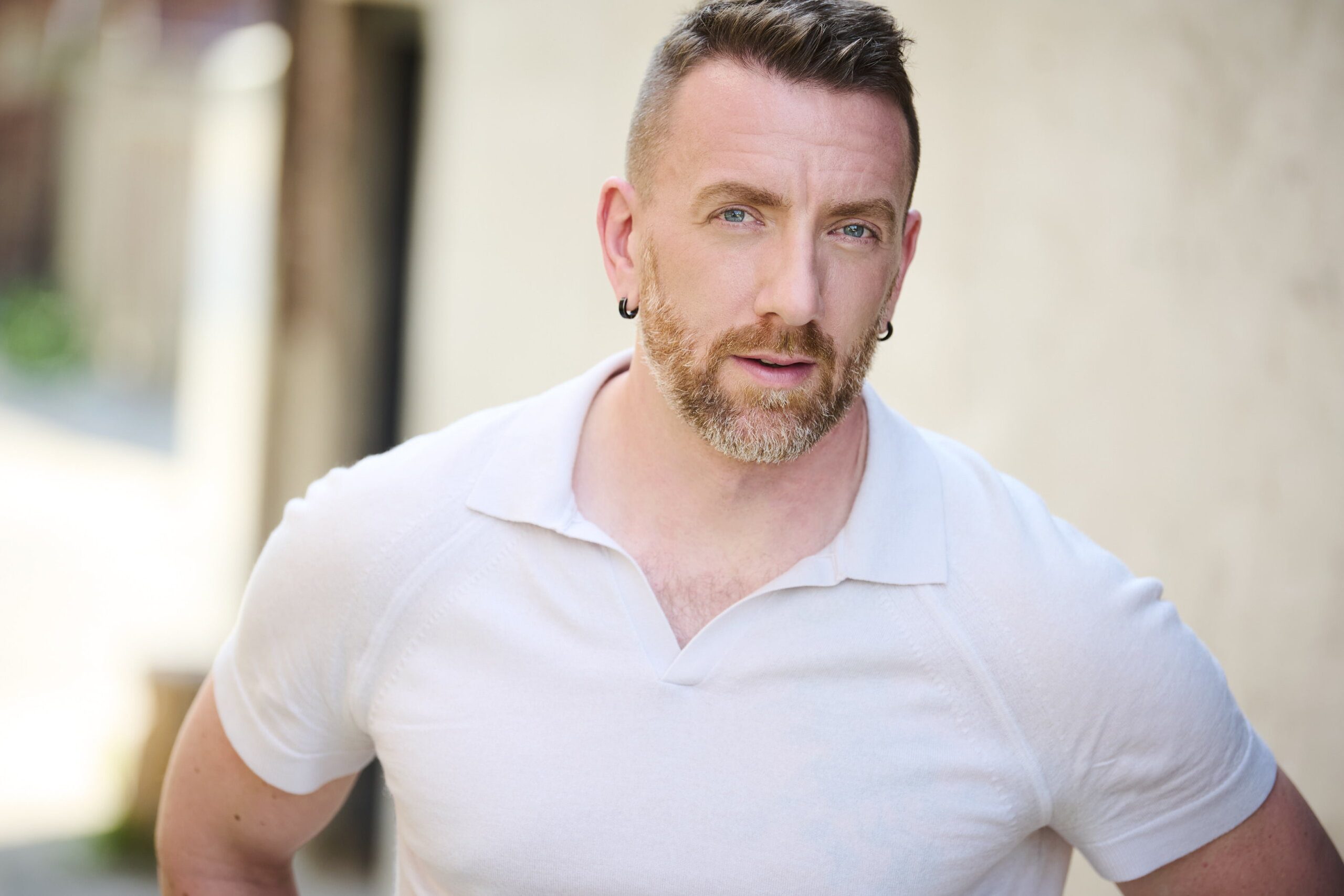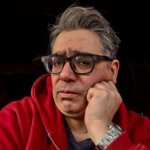“I was identified as gay before I knew what gay was,” says Canadian Stage artistic director Brendan Healy. “I was seven or eight years old, and everyone would call me ‘faggot,’ which is how my identity was forged.
“The AIDS crisis was happening simultaneously,” continues the 48-year-old from his downtown Toronto office, “and my understanding of being gay was being sick because that was the only media representation of gay men at the time. Before I even had a notion of sexual desire, I associated gayness with illness and death.”
It is a common association for gay men who came of age in the 1980s and 1990s. At its height in 1995, AIDS claimed 1,764 lives in Canada and was the number-two killer of men aged 22 to 45 in the country, behind suicide. Tens of thousands were infected, with a prevalence in gay men, intravenous drug users, Indigenous populations and people from countries where HIV was endemic. Antiretrovirals would soon transform HIV/AIDS into a manageable condition, but mainstream PrEP was more than 20 years away.
The young Healy found salvation in theatre at 13. “My mother enrolled me in the Creations program,” says Healy, who grew up in a working-class neighbourhood in Montreal’s west end. “We wrote, directed and acted in our plays, and the city gave us a dilapidated hangar, and we put on a theatre festival.”
The program also introduced him to the broader gay community and a supportive environment. “It was the first time I met other gay people and the first time I felt safe,” he explains. “Up until that point, I wanted to erase myself because my visibility often resulted in violence.” Although the program made an instant impression, he didn’t immediately see theatre as a profession: “Theatre, identity and visibility were fused into one when I was 13, but I only later realized it was a career option and people did it for a living.”
Healy earned a bachelor’s degree in theatre performance at Montreal’s Concordia University in 2000 and graduated from the National Theatre School’s directing program in 2005. Four years later, at the age of 34, he took the reins of Toronto’s Buddies in Bad Times, the world’s longest-running queer theatre, where he directed trans icon Nina Arsenault’s one-woman show The Silicone Diaries, and helped bring Two-Spirit Anishinaabe playwright Waawaate Fobister’s Agokwe to national prominence.
After a joint master’s degree in international arts management offered by Southern Methodist University in Dallas, HEC Montréal and the SDA Bocconi School of Management in Milan, Italy, Healy spent a year as artistic director of the City of Brampton’s Performing Arts program.
Although he started with Canadian Stage in 2018, the COVID-19 pandemic put indoor performances on hold, and 2022–2023 was the company’s first full season under his leadership, opening with Healy directing the English-language premiere of Olivier Choinière’s Public Enemy.
Healy is closing this year’s season by directing Matthew López’s The Inheritance Part 1 & Part 2. The six-and-a-half-hour Tony- and Olivier-winning play reimagines E.M. Forster’s novel Howard’s End, shifting the setting to Manhattan some 30 years after the height of the AIDS epidemic. A sprawling intergenerational story about Eric and Toby, a 30-something couple that meets “an older man haunted by the past and a younger man hungry for a future,” López’s play—the first by a Latinx playwright to sweep best play awards in London and New York—asks what it means to be a gay man today and how race, age, class and history bring us together and tear us apart.
The Canadian Stage production features a diverse cast, including Antoine Yared and Qasim Khan as the newly engaged 30-somethings Toby and Eric, theatre legend Daniel MacIvor as Walter (in the dual role of their older neighbour and Morgan), and rising star Stephen Jackman-Torkoff—the non-binary actor who wowed audiences as the lead in last year’s Stratford production of Richard II—as Adam, the young man who drifts into their lives.
“My two considerations for casting were finding the right actors for the part and ensuring that the cast reflects the city,” says Healy. Reflecting specifically on Jackman-Torkoff, he adds, “I’ve known Stephen for many years, from when they were a student at NTS. As with everyone in the cast, I could not imagine a better actor for the part.
“I can’t think of another play that brings generations of gay men together to ponder how we’re connected,” says Healy. “It’s revolutionary because our community is so siloed generationally. Whether you’re a survivor of the [AIDS] crisis, came of age like me when the crisis started to subside or are in your 20s with no experience of the crisis, each experience is honoured within the story of the play.”
Healy praises The Inheritance for its gay voice, but is conscious that the Canadian Stage is a mainstream venue that speaks to a broad audience. While he sees his former home at Buddies as a diverse venue with explicitly queer connective tissue, he says, Canadian Stage is a venue that accommodates different communities, creating a space where they can speak to each other.
The Inheritance “is an authentic reflection of the community, but it’s intended for a big audience and a mainstream venue like Canadian Stage,” says Healy. When asked whether the play might be construed as assimilationist, he says: “There’s a lot of conversation in the play about assimilation. What does it mean to be a gay man today? … The play questions how gay culture has been incorporated into the mainstream and if that’s a good thing. What do we gain from it? What do we lose? I’d say the play kind of advances queer values in that way.”
As a contemporary play, The Inheritance addresses the current state of queer rights. “There are explicit conversations about the progress gay men have achieved over the decades, which is not uniformly experienced in the community,” says Healy. “It’s easy in one’s privilege to lose sight of those left behind. Just because you feel comfortable and safe doesn’t mean everyone does. Safety is not guaranteed.”
Healy acknowledges a responsibility to further the legacy of queer elders who did not benefit from the fight they led. He recognizes that progress is not always linear and that things sometimes fall backward and disappear. “The play allows me to situate my body in our history,” says Healy. “It’s wild what our community has undergone in 40 years. The play demands we reflect on the current moment as a community, ask how we got here and where we need to go next.”
Healy doesn’t see his career as a series of strategic decisions, but as a mixture of effort, luck and opportunity driven by a desire for community. “I can’t make theatre without other people,” he says. “I wouldn’t be a painter or a writer because I need other bodies to express myself. And I love welcoming an audience every night and creating a community space for a story.”
Theatre has permitted Healy to discover himself and others and experience true intimacy, overcoming solitude and loneliness as a person and a gay man.
“I am contained within this body and skin,” he muses. “It’s a profoundly scary experience being alive, but there’s a loneliness that comes from being gay. From people wanting to reject me, exclude me and stigmatize me before I knew who I was. It’s a fundamental wound that leaves me feeling a little separate from society, and theatre was the first place where I felt a sense of connection that wasn’t contrived.”
As a single gay man who is childless by choice, Healy is happy with his path in life and remains grateful for that first experience with theatre at 13: “It helped me feel less alone for the first time, and my heart is fused with that initial feeling when it comes to theatre.”
Circling back to the present and the Canadian Stage production of The Inheritance, he says that loneliness is the core of the play and the silent engine that pushes the play forward. He concludes with E.M. Forster’s immortal line from Howard’s End, spoken in López’s play.
It may well be Healy’s motto: “Only connect.”
The Inheritance Part 1 & Part 2 runs at Canadian Stage in Toronto to April 14.


 Why you can trust Xtra
Why you can trust Xtra


